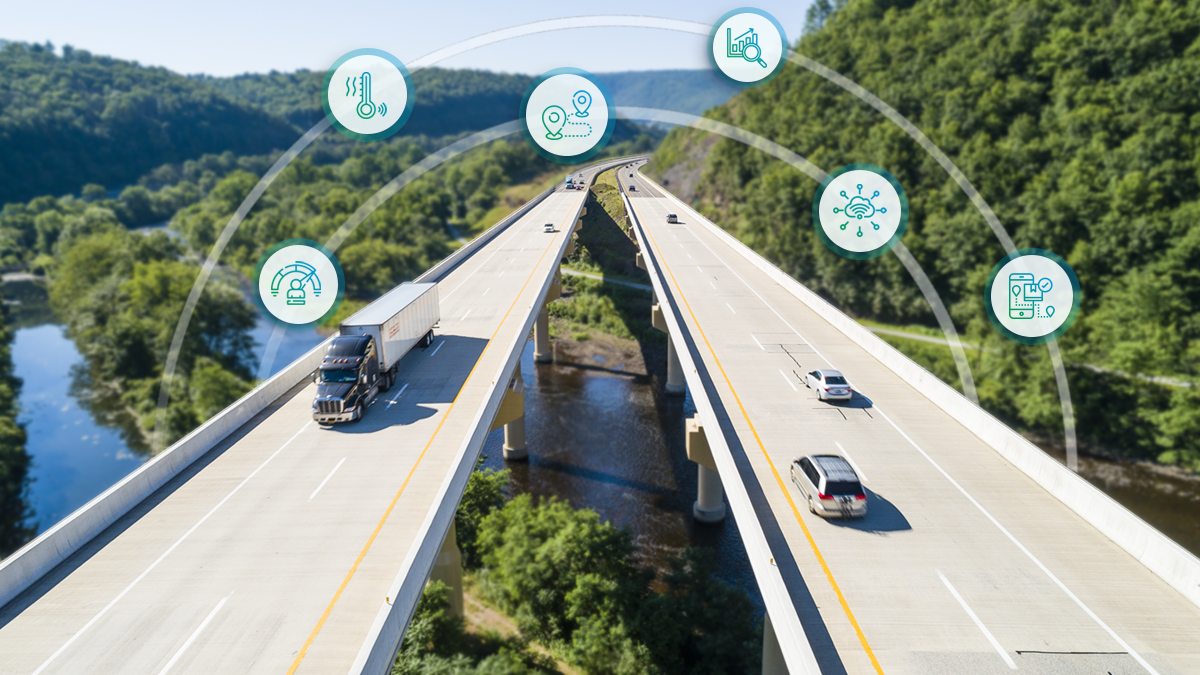How IoT-Enabled Fleet Management Can Help Us Reach Net Zero Emissions
April 14, 2023
As Singapore aims to reach its Green Plan by 2030 and raise its carbon tax, the Internet of Things (IoT) will play a huge role in the future of energy-efficient road infrastructure and fleet management.
It’s essential to consider how IoT-based fleet management can benefit our environment in the years to come. With greater connectivity, fleet owners in Singapore and around the world can reduce carbon emissions and reach net zero faster – here’s how it works.
Envisioning The Future: What Will An IoT-Enabled Fleet Management System Look Like?
In IoT-enabled fleet management, data is transferred between vehicles, road infrastructure, and smartphones, providing drivers and fleet operators with greater situational awareness and real-time insights on their fleet than ever before. Through this, fleet operators can more effectively coordinate vehicle movements regardless of fleet size and monitor vehicle health, performance and driver safety with greater attention to detail.
But how does this relate to reducing carbon emissions as a whole? The answer lies in an IoT-enabled system’s improved vehicle tracking and routing, as well as the availability of IoT fleet data on fuel consumption, idle time, mileage, and vehicle wear and tear.
How Does IoT-Enabled Fleet Management Help To Reduce Carbon Emissions?
Less Road Congestion With Improved Routing And Monitoring
Using data from IoT-connected vehicles, fleet operators can monitor vehicles anytime and revise vehicle routes based on real-time route data. With optimised route planning and trip scheduling, fleet operators will be able to make deliveries in less time and with fewer trips, leading to fewer cars on the road. Fleet operators will also benefit from improved real-time visibility, which will allow them to respond flexibly to emergency situations or last-minute trip changes.
Reduced Fuel Use With Idling Time Tracking
In the age of connected cars, fleets can operate with a minimal carbon footprint. An IoT-enabled fleet management system will allow fleet operators to closely track excessive idling, which is a significant contributor to fuel consumption and carbon emissions. IoT monitoring will enable fleet operators to better understand their fleet’s performance, as well as driver behaviour behind the wheel. Knowing this, fleet operators can provide training to help drivers reduce unnecessary idling time and unsafe, aggressive driving. In addition, IoT connectivity will enable fleet operators to monitor traffic conditions and further improve trip planning, resulting in more efficient operations.
What About EVs And IoT-Enabled Fleet Management?
Electric vehicles (EVs), the future of fleet management, and also Autonomous Vehicles (AVs), are all entirely dependent on a robust IoT network. A strong IoT framework is needed to connect drivers to available EV charging stations and gather data on everything inside and surrounding a vehicle – driver behaviour, vehicle surroundings, vehicle health, EV stations, road traffic, etc.
Meanwhile, the road to full electrification is long, with a prediction of only 13% of cars being electric on the roads by 2035. The rate at which the EV road infrastructure is being developed is slow and differs across countries. In fact, by 2050, the majority of vehicles may still be powered by gas.
To reduce carbon emissions in the meantime in compliance with worldwide net zero policies, fleet owners can take advantage of IoT-enabled fleet management systems to monitor and minimise fuel spending. This not only saves time for fleet managers in analysing fuel usage, but also reduces carbon emissions. And in the years ahead, fleet managers will not only be able to achieve greater savings on fuel expenses, but also track charging costs, safety, and vehicle health for EVs.
Final Thoughts
The global push for a more sustainable future has placed increased pressure on the transportation industries to reduce emissions. In Singapore, this has resulted in a focus on fleet management tracking and connected cars as a way to help reach net zero emissions.
As we move closer to net zero emissions, IoT connectivity will play a huge role in helping us reach this goal. Fleet companies will be at the forefront of this change, as they have the opportunity to adopt new technologies and improve their operations.
At V3 Smart Technologies, we develop solutions that support fleet owners, drivers and policy makers in creating a future where vehicles can achieve seamless connectivity while also helping to protect the environment. Learn more about our solutions.

